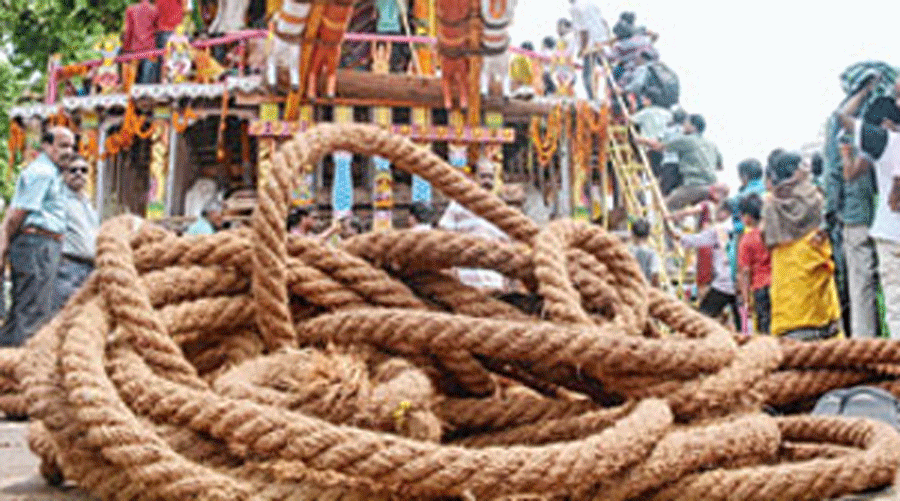Striking a note of harmony amidst the recent flare-up of communal issues in Karnataka, the Chennakeshava temple at Belur in Hassan district kickstarted the annual rathotsava (chariot festival) this year, after verses from the Quran were recited in keeping with the syncretic tradition followed there for years.
Following the traditions, which according to locals have been practised for centuries, Syed Sajjad Basha, Khaji of Dodda Meduru, chanted verses from the Quran on Day 1 of the two-day rathotsava festival on April 13, following which the chariot was pulled.
According to the authorities there, it is not clearly known as to when the tradition of reciting Quranic verses began at the fair in the temple, which was built by Hoysala rulers.
However, the temple manual, which dates back to 1932, has a mention about the tradition, which is being followed to this day, they said.
Belur was the erstwhile capital of the Hoysalas and referred to as Velapur, Velur and Belahur at different points in history.
The temple, which is known for its sculptural extravaganza, was consecrated by the famous Hoysala king Vishnuvardhana to mark his victories in 1116 AD against the Cholas.
Thousands of people had gathered at the rathotsava that saw Lord Chennakeshava, one of the incarnations of Lord Vishnu, being carried out in a chariot after Basha read out the verses from the Islamic scripture.
Basha recited the verses in the presence of temple authorities, with local leaders and a large gathering of people, standing at the foot of the chariot.
He said the practice has been followed for generations by his ancestors and that his son and grandson too would follow the same.











